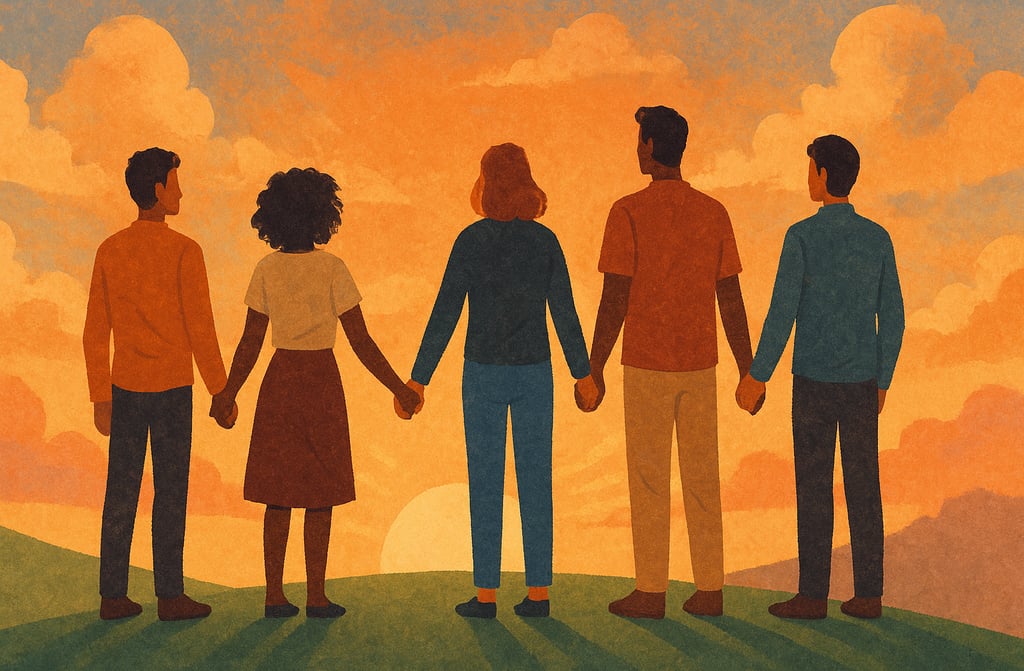Unity Without an Enemy
What if unity didn’t require uniformity — or an enemy to stand against? In this third part of the Apostate Trilogy, I reflect on what real connection looks like after leaving a high-control group. It’s a personal look at the pain of being labeled an enemy, and a hopeful vision for friendship and solidarity across belief lines.
TTATT
Oliver
5/7/20252 min read


It’s a strange thing, being cast as the villain in someone else’s story.
When I still identified as a Jehovah’s Witness, unity was everything. It was the mark of true Christianity. We were united in faith, appearance, speech, beliefs, goals — even our personalities seemed to converge. And when someone left the group, we didn’t just see it as a personal choice. We saw it as a betrayal. You were either with us — or you were against us.
Now that I’m on the other side of that line, I’ve learned that you can love unity without needing an enemy to unite against.
For Jehovah’s Witnesses, unity isn’t just about shared purpose — it’s about shared exclusion. The constant reminders to avoid apostates, steer clear of “worldly” people, and reject independent thinking all reinforce the same thing: that the outside world is dangerous, and anyone who questions the group is suspect. The narrative is simple: if you leave, you’ve turned your back on Jehovah. There is no grey zone. And the rest of us must protect the flock by cutting you off.
That logic runs so deep that even a peaceful exit gets rewritten as rebellion. When I stepped away, I wasn’t angry. I didn’t slam the door. I didn’t try to drag anyone with me. But still, some people distanced themselves immediately. Others were kind at first, then went quiet. A few reported me to the elders. Why? Because it wasn’t just that I left. It was that I no longer played the role they needed me to play — the loyal insider.
Unity, in that context, depends on exclusion. It needs a clear line between “us” and “them.” And if no enemy exists, one gets created.
But it doesn’t have to be this way.
Real unity doesn’t require uniformity. It doesn’t demand that everyone believe the same thing, wear the same thing, say the same things. It’s possible to be deeply connected to others across difference — without fear, without shame, without coercion.
When I left, I didn’t stop loving my friends. I didn’t suddenly become their opponent. I still believed in kindness, truth, loyalty, love. I just no longer believed those things belonged to one religion alone.
So this post is for anyone who’s been called an enemy when all they wanted was honesty. For those who left gently, who still hope for connection, who don’t see former friends as adversaries. And maybe even for some who stayed, but feel the dissonance in your gut.
Unity without an enemy is possible. I know it because I’ve seen it. I’ve felt it. And I’m still holding space for it.
